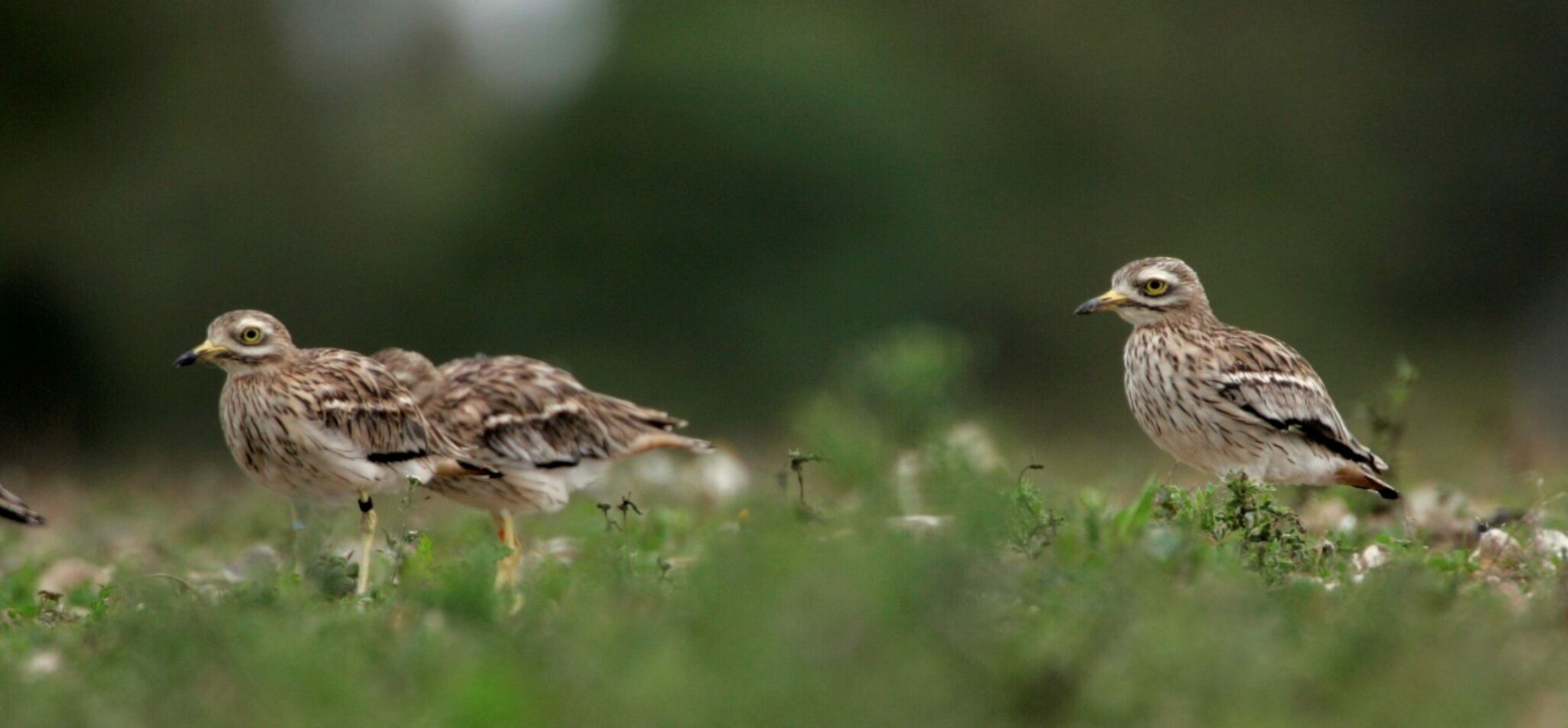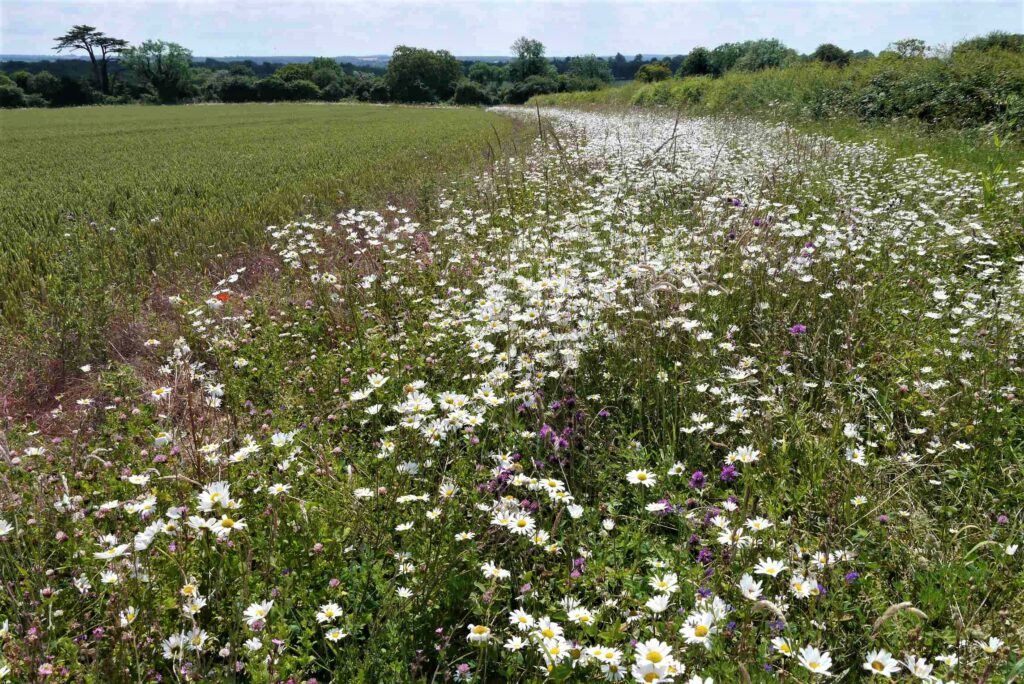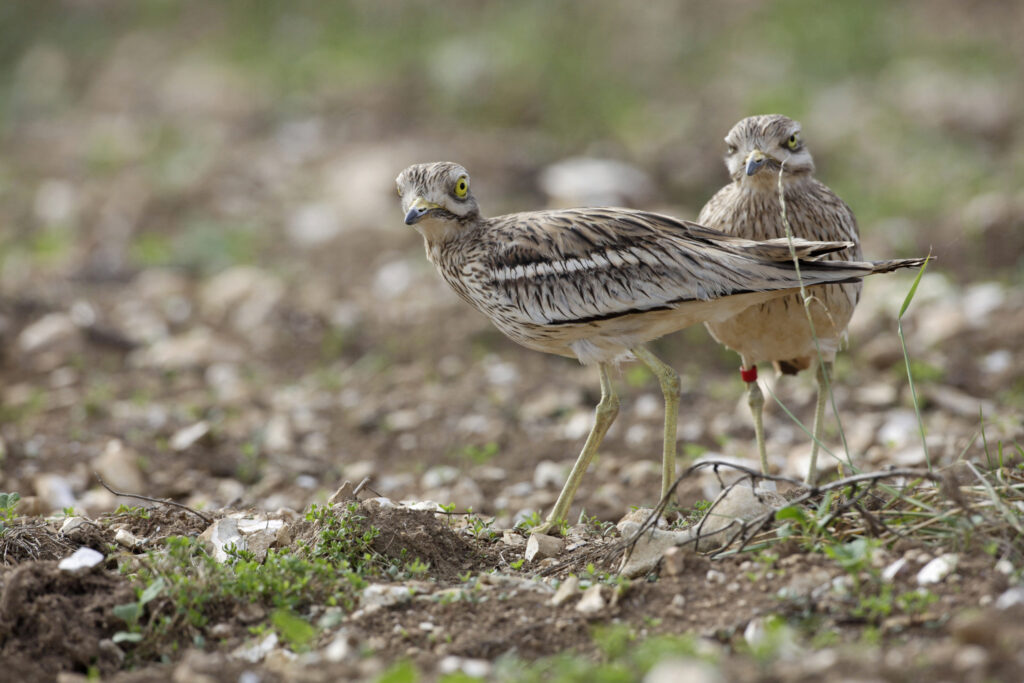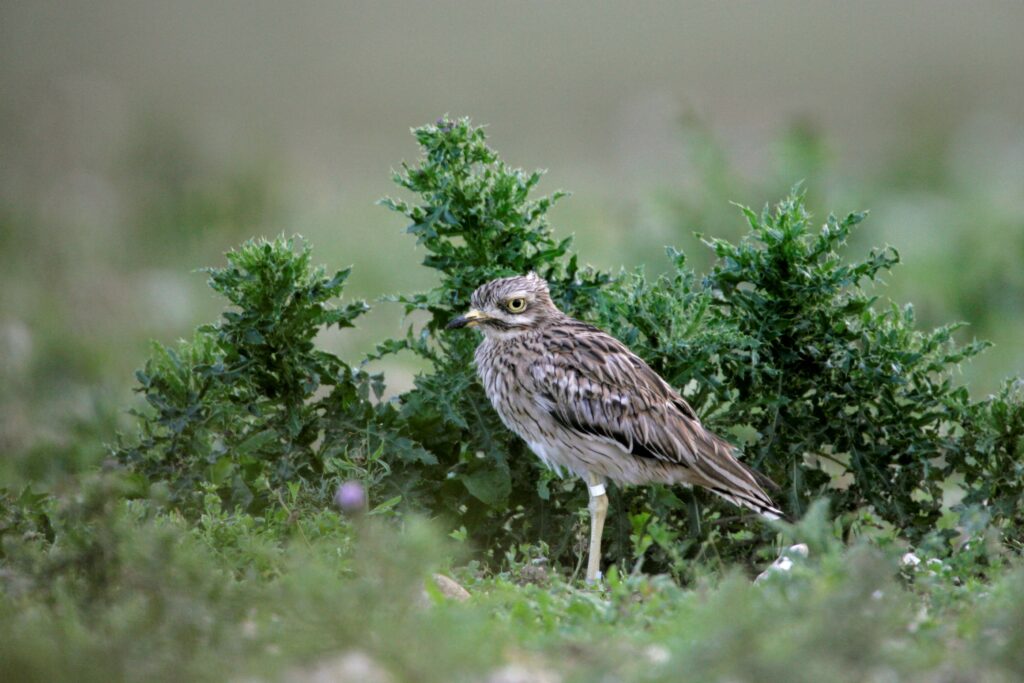
Summerdown are the Peppermint People. They grow, harvest and distil their signature Black Mitcham peppermint on their Hampshire farm – and have been doing so for over 25 years.
Black Mitcham is an extraordinary peppermint prized for its pure, bright character and it’s a taste that had been all but lost to England. Alongside other arable crops and herbs such as camomile and lavender, the Summerdown team now grow around 100 acres of Black Mitcham, transforming it into their own single-estate peppermint oil, which they use in their peppermint mint tea as well as in their chocolates and other products.
But what has that got to do with Stone-curlews?
Well, the farm at Summerdown has been a Fair to Nature certified farm since 2004, so it’s fair to say the Summerdown team is passionate about sustainable farming. Sustainability has always been a way of life at Summerdown. They believe in farming for the future, always thinking about their impact on the environment and how they can maintain a thriving, sustainable ecosystem.

Biodiversity is crucial to the business and is championed by the peppermint. The team shares a holistic approach to the farm – every area of the farm is connected. The health of the peppermint crop, for example, is dependent on hedgerows and the wildlife found within them and this is why encouraging birds to nest on the farm is so vital.
Master of Mint and Farm Manager, Ian, has turned Summerdown into a peppermint playground for wildlife, insects and flowers. There are bees galore in the mint fields, barn owls in farm buildings and every year special feed crops for birds are planted and wildflower seeds are sown, encouraging creatures to make themselves at home around the fields and woodlands.
There have been two nesting pairs of Stone-curlew this year (2023) so Ian and the team are hopeful that this is the start of a population increase. Summerdown Farms is a member of the RSPB’s Wessex Stone-curlew project and for a number of years the birds have only visited, so it is hugely exciting for the farm to have breeding pairs once more!
Stone-curlews are creatures of habit and often return to their site of birth so we hope this is the start of a thriving population.

Essential oil crops such as peppermint and lavender are ideal for ground nesting birds because the ground is not disturbed – the crops are perennial so remain in the soil throughout the winter.
Stone-curlews prefer to nest on high ground, with good 360 degree views and few trees, and will often lay eggs within metres of the spot used in previous years. The Summerdown birds are the same, and with arable crops in adjoining fields and no footpaths nearby they also remain undisturbed by dog walkers.
The stone-curlews are monitored by a licensed expert, an RSPB volunteer, and his advice is followed to the letter to protect these birds. Nests are marked with canes so they can be left undisturbed by farm machinery, helping ensure their success.

As many readers will be aware, there has been a nationwide decline in farmland birds due to factors such as the loss of suitable habitats and changes in farming in the drive for ever cheaper food, so it is great to see the return of Stone-curlews at Summerdown. They join other farmland birds including Lapwing, Skylark, Yellowhammer and a wide variety of other wildlife, which call the farm home. Long may they keep their googly eyes on Summerdown’s Fair to Nature farming.
We can all help Stone-curlews and many other farmland birds by ensuring that the ingredients in the foods we buy are sourced from nature-friendly farms and the RSPB’s Fair to Nature Mark makes these products easily recognisable. The Fair to Nature team work with farms and food businesses, like Summerdown, to increase the amount of nesting and foraging habitats available to farmland wildlife. Summerdown’s range of herbal teas will soon be some of the first products to carry the new RSPB Fair to Nature Mark.
Tomorrow is grown from our actions today
Contact us today to find out how we can help achieve a great tomorrow
Register Interest
Sidebar form
or email us at fairtonature@rspb.org.uk
